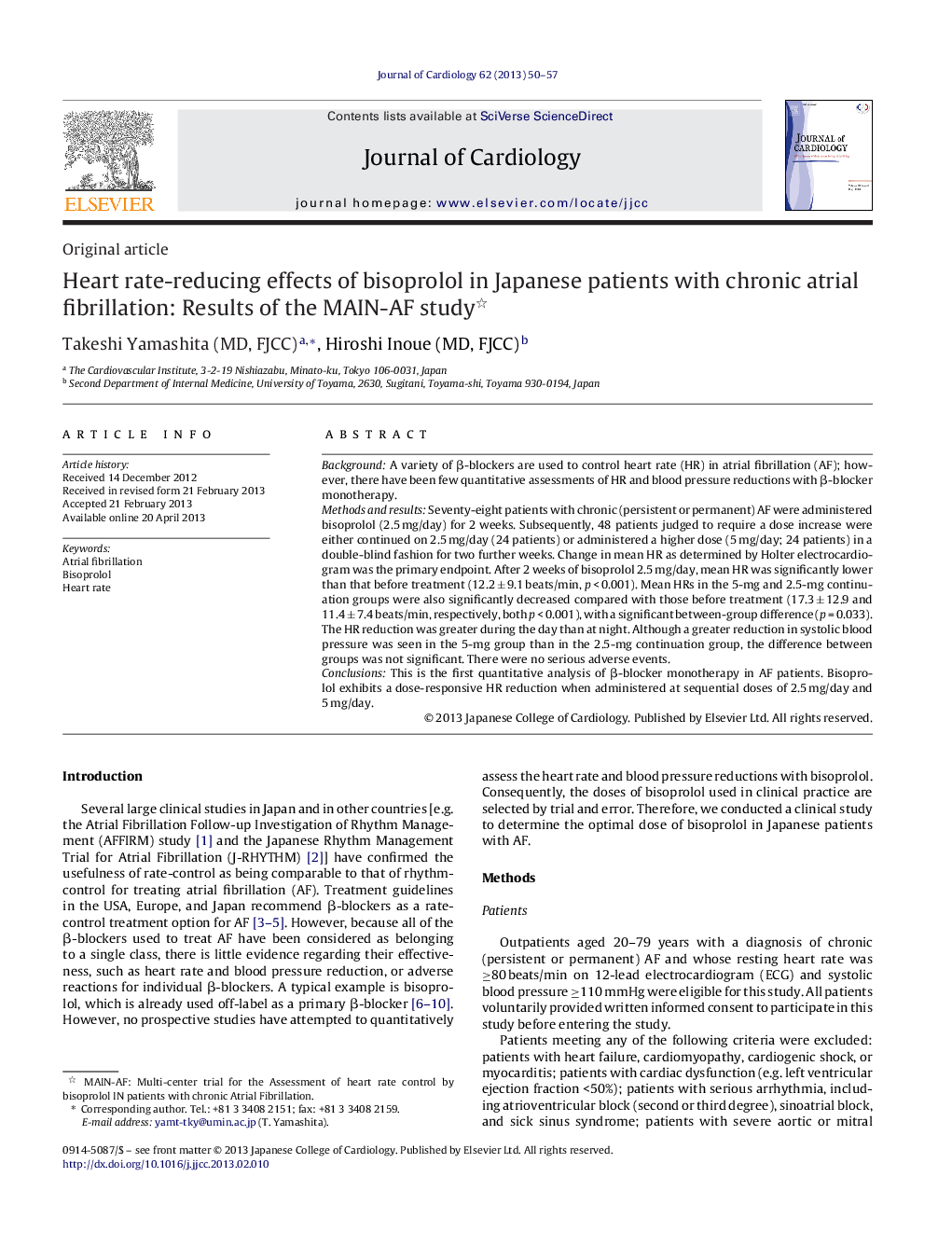| Article ID | Journal | Published Year | Pages | File Type |
|---|---|---|---|---|
| 2963420 | Journal of Cardiology | 2013 | 8 Pages |
BackgroundA variety of β-blockers are used to control heart rate (HR) in atrial fibrillation (AF); however, there have been few quantitative assessments of HR and blood pressure reductions with β-blocker monotherapy.Methods and resultsSeventy-eight patients with chronic (persistent or permanent) AF were administered bisoprolol (2.5 mg/day) for 2 weeks. Subsequently, 48 patients judged to require a dose increase were either continued on 2.5 mg/day (24 patients) or administered a higher dose (5 mg/day; 24 patients) in a double-blind fashion for two further weeks. Change in mean HR as determined by Holter electrocardiogram was the primary endpoint. After 2 weeks of bisoprolol 2.5 mg/day, mean HR was significantly lower than that before treatment (12.2 ± 9.1 beats/min, p < 0.001). Mean HRs in the 5-mg and 2.5-mg continuation groups were also significantly decreased compared with those before treatment (17.3 ± 12.9 and 11.4 ± 7.4 beats/min, respectively, both p < 0.001), with a significant between-group difference (p = 0.033). The HR reduction was greater during the day than at night. Although a greater reduction in systolic blood pressure was seen in the 5-mg group than in the 2.5-mg continuation group, the difference between groups was not significant. There were no serious adverse events.ConclusionsThis is the first quantitative analysis of β-blocker monotherapy in AF patients. Bisoprolol exhibits a dose-responsive HR reduction when administered at sequential doses of 2.5 mg/day and 5 mg/day.
